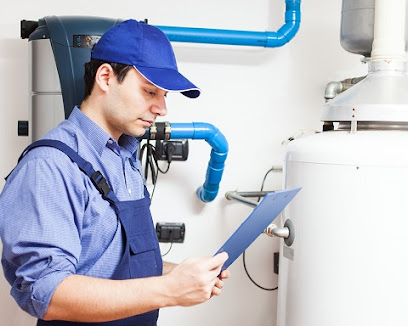Water leaks can cause considerable property damage, resulting in costly repairs and severe health risks. This is where water leak sensors come in. These gadgets detect the presence of water and notify homeowners before the situation worsens. This blog post will examine how does water leak sensors work, the wide varieties, and their importance in protecting your property from water damage.

What Exactly Are Water Leak Sensors?
Water leak sensors, sometimes called water detectors or moisture sensors, are tiny electrical devices that detect the presence of water or excessive moisture in a specific region. Their primary purpose is to notify homeowners of impending leaks or flooding before significant damage occurs.
The probe, the circuitry, and the alarm system are the three major components of these sensors. The investigation, frequently made of conductive materials such as metal or moisture-absorbent compounds, detects the presence of water or moisture. When the probe contacts water, the circuitry sends a signal to the alarm system, which emits an audible alert or initiates a notification system, such as sending a message to the homeowner’s smartphone.
What Are The Different Types Of Water Leak Sensors Available?
Water leak sensors come in various styles, each designed to uniquely detect and respond to water leaks. Here are some examples of popular water leak sensors:
Spot Sensors
The most popular sort of water leak sensor is a spot sensor. Small, battery-powered devices, such as basements, laundry rooms, or near plumbing fixtures, are installed where water leaks are common. These sensors sense water directly on their surface or via the conductivity of the liquid. When water is detected, the sensor sounds an alarm, alerting the user to potential leaks.
Cable Sensors
Cable sensors are made up of a length of cable that has many detecting locations along its length. Typically, the cable is run along the floor or around water-prone regions. When water comes into contact with the cable, an alert is sent, allowing homeowners to locate the exact position of the leak.
Probe Sensors
Probe sensors are long, flexible devices that can be placed in small places or near possible leak sources. They help detect leaks from appliances, pipes, and water heaters. Probe sensors detect moisture through their conductive probes, rapidly alerting householders to the presence of water.
Wi-Fi-Enabled Sensors
Water leak sensors with Wi-Fi connectivity link to your home’s Wi-Fi network, allowing you to receive notifications on your smartphone or other connected devices. These sensors frequently have additional capabilities, such as temperature tracking and humidity detection, giving you a complete picture of your home’s environment.
What Are The Benefits Of Water Leak Sensors?
Water leak sensors provide various advantages to homeowners, including:
Early Warning
These sensors provide early alerts of water leaks or excessive moisture, allowing homeowners to take rapid action and prevent additional harm.
Minimize Damage and Costly Repairs
Water leak sensors can assist in preventing damage to your property by detecting leaks early, decreasing the need for significant repairs and associated costs.
Peace of Mind
Homeowners can have peace of mind knowing that their property is being monitored for potential water damage even when they are away if water leak sensors are installed.
What Are The Considerations For Water Leak Sensors In Terms Of Maintenance?
Water leak sensors must be properly maintained to function correctly:
Regular Testing
Test your water leak sensors regularly to ensure they are working correctly. To conduct testing and replace batteries, follow the manufacturer’s instructions.
Placement Considerations
Install leak detection sensors near water heaters, washing machines, dishwashers, and sump pumps. Check that the sensors are correctly positioned and have direct contact with probable water sources.
Routine Inspections
Inspect the sensors regularly for evidence of damage, corrosion, or dysfunction. If necessary, clean the sensors because dust and debris might impair their effectiveness.
How Do Smart Water Leak Sensors Work?
Smart water leak sensors are a more sophisticated version of classic leak sensors combined with smart home technologies. These sensors provide real-time monitoring and alarms by combining sensing mechanisms with wireless connectivity. This is how they work:
Sensing Mechanism
Moisture-sensitive probes or sensors that detect the presence of water or excessive moisture are commonly used in smart water leak monitors. The detecting mechanism sends a signal when water is detected.
Wireless Connectivity
Smart leak sensors use wireless technologies such as Wi-Fi or Bluetooth to link to a home automation system or a specific mobile application. Because of their connectedness, they may transmit immediate warnings and alarms to the homeowner’s smartphone or other connected devices.
Continuous Monitoring
Smart leak sensors constantly monitor the region for water leaks and offer real-time moisture data. This information allows homeowners to stay current on the status of their property even when they are away.
Smart Home System Integration
Water leak sensors that are smart can be linked with current smart home systems such as smart hubs or home automation platforms. This integration enables centralized control and monitoring of many sensors located throughout the home. Homeowners can use a mobile app or web interface to check on and control their sensors from anywhere.
Mobile Alerts and Notifications
When a water leak is discovered, smart leak sensors immediately notify the homeowner’s connected devices. Depending on the user’s preferences, these notifications can be push notifications, text messages, or emails. The immediate reports allow homeowners to take timely action and reduce potential water damage.
How Sensitive Are Electronic Leak Detectors?
Electronic leak detectors are meant to be highly sensitive to detect leaks accurately. The sensitivity level can be modified based on the application’s specific needs. This enables users to tailor the detector’s reaction to various leak sizes and situations.
Electronic leak detector sensitivity is commonly measured in parts per million (ppm) or parts per billion (ppb). The lower the ppm or ppb value, the more sensitive the detector is to leak detection. Modern electronic leak detectors may frequently detect leakage in the ppm or ppb range, allowing for early identification and intervention.
Conclusion
Water leak sensors are critical gadgets for protecting your property from the devastation caused by water damage. These sensors provide early alerts of leaks or excessive wetness, allowing homeowners to take rapid action and prevent additional harm. Investing in water leak detection technology, whether spot sensors, cable sensors, probe sensors, or Wi-Fi-enabled sensors, is a prudent investment that can save you money on repairs and provide you with peace of mind.



